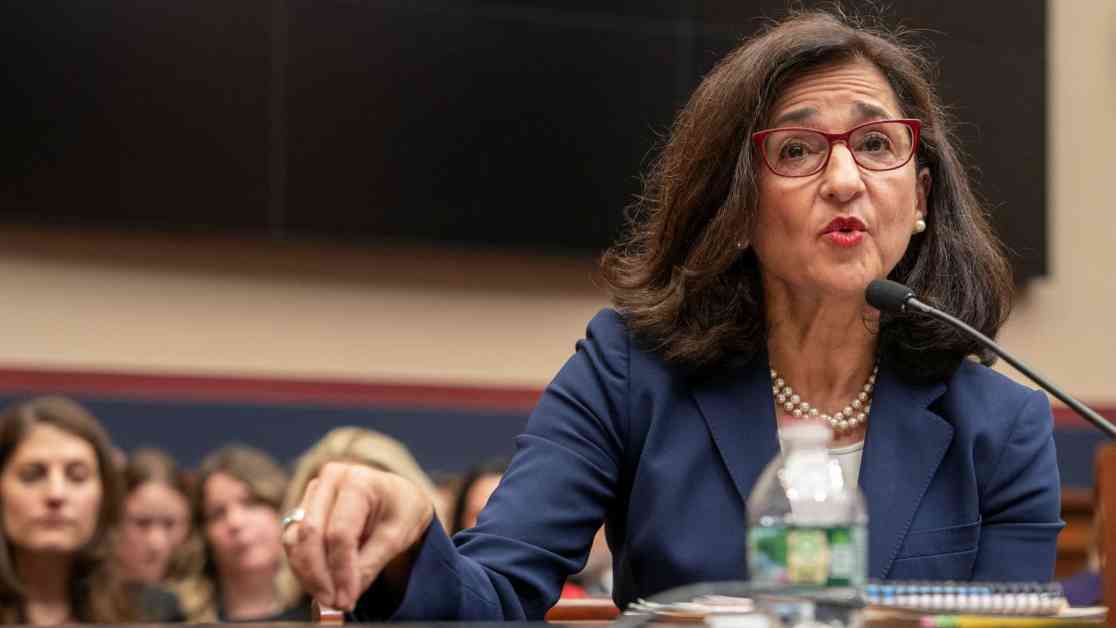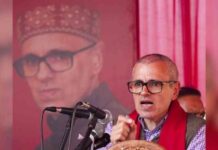Resignation of Columbia University President Amid Israel-Hamas Protest Turmoil
Columbia University President Nemat “Minouche” Shafik’s abrupt resignation has sent shockwaves through the academic community, marking the end of a tumultuous tenure marred by protests and controversy. Shafik’s departure comes on the heels of mounting criticism over her handling of demonstrations on the Manhattan campus related to the conflict between Israel and Hamas in Gaza. The resignation, effective immediately, has left many questioning the future direction of one of the nation’s most prestigious Ivy League institutions.
Shafik’s Controversial Tenure
Shafik, an esteemed economist who assumed the role of Columbia University president in July 2023, faced a series of challenges during her brief time in office. The tipping point came amid escalating tensions stemming from protests by anti-war activists and House Republicans alike. The demonstrations, sparked by the conflict in Gaza, raised concerns about freedom of speech, political polarization, and the university’s stance on contentious issues.
In a letter addressed to the Columbia community, Shafik acknowledged the difficulties of her tenure, stating, “This period has taken a considerable toll on my family, as it has for others in our community.” While citing progress in various areas, she alluded to the deep-seated divisions that have plagued the campus, leading to her decision to step down. The resignation, she emphasized, was a strategic move to allow for new leadership to navigate the turbulent waters ahead.
Protests and Campus Unrest
The protests that marred Shafik’s presidency were emblematic of broader societal tensions surrounding the Israel-Hamas conflict. Demonstrators, including students and activist groups, staged encampments on the Manhattan campus in a show of solidarity with Palestinians. The clashes between protesters and university authorities culminated in the New York City Police Department being called in to disperse the encampments, further exacerbating the already strained relations.
The controversy intensified when Shafik appeared before a House committee to address concerns about antisemitism on campus. The scrutiny of her handling of the issue only added fuel to the fire, leading to heightened scrutiny and calls for accountability. The culmination of these events ultimately paved the way for Shafik’s resignation, marking a turning point in the university’s trajectory.
Leadership Transition and Future Outlook
With Shafik’s departure, Columbia University’s Board of Trustees swiftly appointed Katrina Armstrong, CEO of the Columbia University Irving Medical Center, as the interim president. Armstrong’s background in health and biomedical sciences brings a unique perspective to the role, signaling a potential shift in focus for the institution. In her letter addressing the community, Armstrong expressed optimism for the future, emphasizing the need to renew the university’s vision and strengthen its sense of community.
The student protest group Columbia Students for Justice in Palestine welcomed Shafik’s resignation, viewing it as a victory for their cause. The group’s vocal advocacy for divestment from Israel underscored the deep-seated ideological divides that have engulfed the campus and fueled the protests. As the university charts a new course under interim leadership, the question remains: How will Columbia reconcile its commitment to free speech with the need to address contentious issues that have divided its community?
In the wake of Shafik’s resignation, the broader implications for academic freedom and institutional governance loom large. The resignations of university presidents like Liz Magill of the University of Pennsylvania and Claudine Gay of Harvard University in similar circumstances underscore the complex challenges facing higher education institutions in an era of heightened political polarization and social activism. The targeting of university leaders by lawmakers and external pressures raise fundamental questions about the role of universities in fostering open dialogue and confronting controversial issues.
As Columbia University embarks on a new chapter under interim leadership, the legacy of Nemat “Minouche” Shafik’s presidency serves as a cautionary tale of the delicate balance between academic principles and societal pressures. The events that unfolded on the Manhattan campus underscore the need for universities to navigate complex political landscapes while upholding their core values of free speech, inclusivity, and academic excellence. The road ahead for Columbia may be fraught with challenges, but it also presents an opportunity for renewal and growth as the institution seeks to chart a path forward in an increasingly polarized world.






















